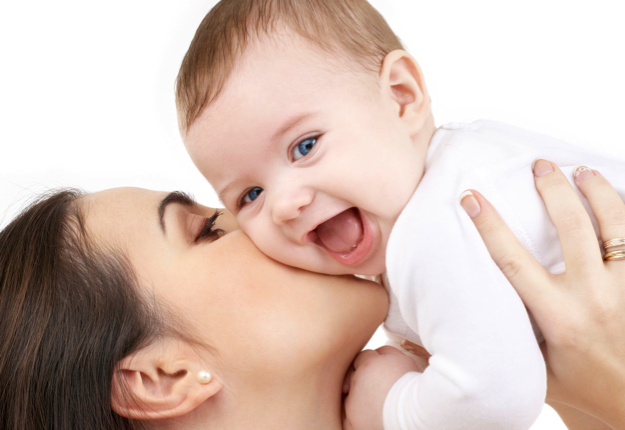Imagine you are a young mother having your back pain diagnosed as osteoporosis, or thinning of the bones. How devastating would that be?
Actually it is more common than you might think, as this disease is increasingly being seen at a younger age.
I watched a TV documentary recently featuring two young mothers with severe osteoporosis. Both had suffered painful spinal fractures and ongoing limitations in their ability to function well due to pain.
As you can imagine, trying to cope with young children without being able to lift and carry them presents a constant challenge.
Osteoporosis is generally a disease of older people, i.e. post menopausal women and men over 60 years. So what are the factors that contribute to this disease in young women?
Pregnancy and lactation draw a significant amount of calcium from the mother’s body.
An old wives tale used to say that women would lose a tooth for every pregnancy (attributed to calcium depletion). This is probably less of a problem today due to better nutrition, but the issue clearly still exists.
Our western diet still leaves a lot to be desired, plus the fact we are exposed to more heavy metals and toxins than ever before.
Eating excess sodium (salt) interferes with calcium levels, as the more salt you eat; the more calcium is excreted in the urine.
According to a 2013 Japanese study, eating a high salt diet is associated with a higher fracture risk. Phosphorus is another mineral that needs to be in the correct balance with calcium to maintain healthy bones.
Intake of phosphorus is at an all time high, due to fertilisers used to grow our food, plus high levels in carbonated soft drinks. Regularly drinking these beverages depletes the bones of calcium.
Fluoride intake is also linked to fractures, as several studies have demonstrated.
The most common sources of fluoride are toothpaste and in drinking water, so you may want to use non-fluoridated toothpaste (adults) and check if your local water supply has added fluoride.
In practice I see quite a few back pain cases in young mothers that improve with calcium supplements.
A course of calcium during the third trimester of pregnancy, and a repeat while breastfeeding is a good insurance policy to help replace the calcium “bone bank”.
This needs to be a high quality, easily absorbed type of calcium. Ethi Cal Bone Builder tablets or powder contain calcium hydroxyapatite, derived from organic cattle bones. This type of calcium has been found to improve bone density faster than other calcium sources.
Of course vegetarians will not want to take this product, so there is an excellent plant sourced alternative, Green Calcium (capsules or powder) from a marine plant harvested off the coast of Iceland. This supplement also contains several other trace minerals needed for bone health.
Magnesium is also necessary for strong bones. Deficiency of this important mineral is common in our society as the body uses higher amounts to help counter the effects of stress.
More magnesium means more calcium is absorbed into the body and ultimately, into the bones. The optimal ratio of calcium to magnesium is 2:1.
Vitamin D3 is the other crucial supplement for bone health, amongst other vital functions such as immunity.
Vitamin D is the sunshine vitamin, and with our increased awareness of skin cancer, use of sunblock products, hats and cover up clothing as well as our indoor lifestyle, Vit D deficiency has become extremely common.
Taking a Vit D3 supplement is vital to build and maintain bone health.
In summary, there are effective natural ways to maintain bone health with diet, nutritional supplements and lifestyle factors including exercise and adequate sun exposure.
Stay strong, stay well!





















2:17 am
4:37 pm
8:33 am
1:38 pm
10:48 am
10:59 pm
-

-
-
mom76837 replied
- 10 Sep 2014 , 8:38 pm
Reply9:42 pm
-

-
-
mom76837 replied
- 07 Sep 2014 , 9:58 pm
-

-
-
manda..84 replied
- 10 Sep 2014 , 9:02 pm
Reply3:12 pm
-

-
-
mom76837 replied
- 03 Sep 2014 , 8:35 pm
-

-
-
ginoula5 replied
- 04 Sep 2014 , 7:26 am
Reply8:02 pm
-

-
-
mom76837 replied
- 03 Sep 2014 , 8:32 pm
Reply12:37 am
-

-
-
mom76837 replied
- 14 Aug 2014 , 8:26 pm
Reply9:12 pm
-

-
-
mom76837 replied
- 13 Aug 2014 , 9:15 pm
Reply8:20 pm
-

-
-
mom76837 replied
- 13 Aug 2014 , 8:36 pm
-

-
-
june11 replied
- 13 Oct 2014 , 1:31 pm
Reply5:24 pm
-

-
-
mom76837 replied
- 13 Aug 2014 , 8:29 pm
Reply3:16 pm
-

-
-
mom76837 replied
- 13 Aug 2014 , 8:25 pm
Reply12:57 pm
-

-
-
mom76837 replied
- 13 Aug 2014 , 1:34 pm
Reply11:49 pm
-

-
-
mom76837 replied
- 13 Aug 2014 , 1:33 pm
Reply11:02 pm
-

-
-
mom76837 replied
- 13 Aug 2014 , 1:32 pm

Reply8:54 pm
-

-
-
mom76837 replied
- 12 Aug 2014 , 9:01 pm

Reply7:00 pm
-

-
-
mom76837 replied
- 12 Aug 2014 , 8:52 pm

Reply12:16 pm
-

-
-
mom76837 replied
- 12 Aug 2014 , 8:56 pm

Reply- 1
- 2
- »
Post a commentTo post a review/comment please join us or login so we can allocate your points.